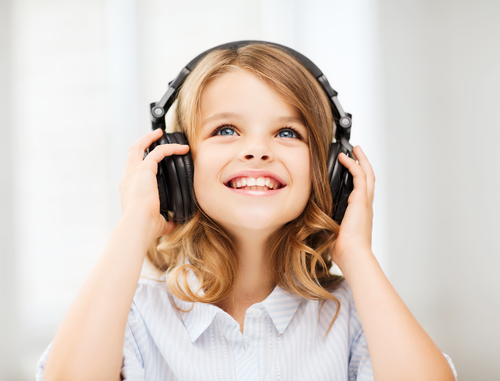Encourage Your Kids to Plug into Music, Not More Technology

Daniel Levitin is the expert on how music affects the brain. His bestselling book
This Is Your Brain On Music
highlighted the many ways the brain reacts to music. With
Fast Company
, Levitin discusses his new book
The Organized Mind
and how the brain is suffering as a result of technological interactions. For example, Levitin explains that the trending phenomena of allowing devices to teach children instead of parents and other people teaching children can have a harmful effect. ...We've learned recently that kids who don't interact regularly with their parents but are instead put in front of educational or instructional television don't learn language properly. Other learning mechanisms are affected in the brain, which lead to higher cases of attention deficit and attention deficit hyperactivity disorder. ...We're also seeing that increasingly digital natives are reporting that they've got shorter attention spans than non-digital natives. Problematically, that high-strung distraction of constant stimulation can cause a peculiar mental twist which sets children up for future problems. Children ...are accustomed to being constantly distracted and we know from neurochemical studies, people get addicted to that distraction.
Children are losing touch with their innate ability to be mindfully aware of their own thought patterns. Being able to identify their needs and wants is a growing skill as they mature, but is often slighted by compulsive behaviors like drug and alcohol addiction. Consequently, adolescents can't tell when they're tired, when they're bored, when they're overwhelmed with emotion, or, as Levitin describes it, when they're experiencing information overload.
Music is one of the ways to get out of this hyper state and into what Levitin says is the mind wandering mode. The mind needs to wander for periods of time without pressure or focus. Often, when the mind is chronically wandering, it is a sign the brain needs a break. As adults, we have another cup of coffee or continue to push ourselves, exhausting our brains. Kids, though immensely resilient, are not meant to endure that way. Too often, they are ridiculed for their distractions, inability to pay attention, and compulsive forms of coping. Levitin explains Taking a break and getting yourself into this mind wandering mode by giving into it for 15 minutes at a time every couple of hours or so, you effectively hit the reset button in the brain, restoring some neurochemicals that had been depleted through focused activity.
Developing practical life skills for coping with moments of overload is something emphasized to adolescents who go to treatment for drug and alcohol addiction. Turning to music, whether playing music or listening to music, is one of the effective ways of helping the brain reset in a healthy manner. Music exploration doesn't have to be an isolating experience. Music can bring the family together by sharing personal favorites, exploring new music together, or playing instruments together.
At Stonewater Adolescent Recovery Center, the family heals as a whole. Our residential treatment programs for adolescent addiction and alcoholism heal mind, body, and spirit, giving young people a foundation for starting a new clean life. For more information, call 662-598-4214.

.jpg)

